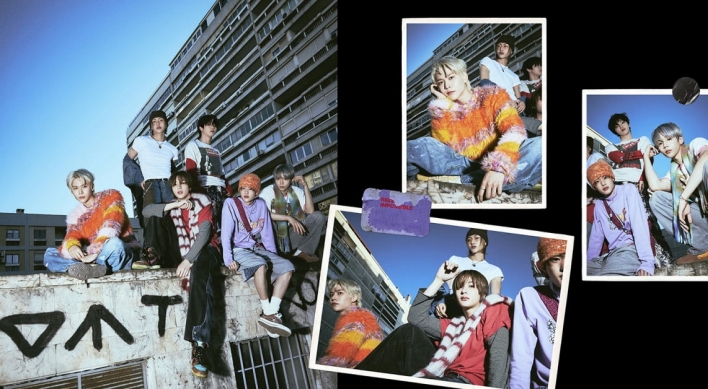지난해 샌프란시스코 공항에서 발생한 아시아나항공의 착륙사고에 대해 정부가 행정처분을 검토하고 있는 가운데 최근 국제항공운송협회(IATA)가 처벌은 불합리하다며 국토부에 서한을 보내 “내정간섭” 논란이 일고 있다.
이에 안토니 타일러 IATA총재는 “국제기준을 제시했을 뿐”이라며 코리아헤럴드에 입장을 밝혀왔다. IATA는 캐나다에 본부를 둔 전세계 240여개 민간항공사들의 협력기구이다. 다음은 일문일답 내용이다.
이에 안토니 타일러 IATA총재는 “국제기준을 제시했을 뿐”이라며 코리아헤럴드에 입장을 밝혀왔다. IATA는 캐나다에 본부를 둔 전세계 240여개 민간항공사들의 협력기구이다. 다음은 일문일답 내용이다.

코리아헤럴드(이하 KH): 대한항공을 제외한 IATA회원사들이 아시아나에 지지를 보내는 이유는 무엇인가?
IATA: 안전은 항공업계의 최우선 사항이다. 사고가 발생했을 때 이를 조사하는 과정에서 안전을 향상시키는 방안들에 다양한 논의들이 이루어진다. 문제는 이 과정이 투명하게 이루어지기 위해서는 형벌적인 환경에서는 불가능하다는 점이다. 의도적인 사고가 아닌 것이 명백한 상황에서 벌금이나 운항정지 등은 불합리하다고 본다. 이럴 경우 이번 아시아나건이 아니라 향후 다른 비슷한 사고에 영향을 미칠 수도 있다.
KH: 아시아나가 국토부에 서한을 보내도록 IATA를 독려했나?
IATA: 그렇지 않다. 최근 서울을 방문했을 때 한국정부가 샌프란시스코 사고와 관련해 행정처분을 검토하고 있다는 얘길 들었다. 잘못된 접근방식이라는 생각이 들어 언론과 인터뷰를 했고 이후 공식적으로 국토부에 직접 의사를 전달하고 싶었다. 국제기준의 일환으로 우려를 표명한 것이었고 국토부가 검토해주길 바랬다.
KH: 이후 한국정부로부터 답변을 받았나?
IATA: 관련해서 답변 받은 것은 없다.
KH: IATA회원사들이 아시아나가 제재를 받을 경우 대한항공이 혜택을 받는 부분에 대해 우려한 것은 아닌가?
IATA: 안전은 경쟁과 관련이 없다. 사고조사과정에서 업계 전체가 교휸을 얻게 되기 때문이다. 다만 비형벌적인 환경에서만이 사고를 낸 항공사도 제재에 대한 두려움 없이 정보를 공유할 것이다.
사고조사의 목적은 안전을 향상시키는 것이지 특정 항공사에 상업적인 혜택을 주거나 처벌을 하는데 있지 않다. 결국 대한항공을 비롯한 모든 항공사가 비형벌적인 접근을 통해 혜택을 받을 것이라고 믿는다.
KH: 대한항공과 아시아나 모두 IATA회원사이다. IATA가 일방적으로 한쪽편을 들 수 있나?
IATA: 이번 건의 경우 “편”이라는 게 있을 수 없다. 여객기 사고가 발생했을 때 제재나 처벌을 통해 범죄화해서는 안된다는 것이 전세계적으로 통용되는 국제기준이다. IATA의 총재로서 이 접근방식을 관철시키는 것 또한 나의 의무이다. 향후 어떤 항공사라도 비슷한 환경에 처하게 된다면 역시 똑 같은 결정을 내릴 것이다.
(정리 코리아헤럴드 이지윤기자)
<관련 영문기사>
IATA responds to questions on intervening in Asiana sanctions
The following are excerpts of an email from Antony Tyler, CEO of the International Air Transport Association, on the association’s decision to petition the Korean government for lighter sanctions on Asiana Airlines for crashing a passenger jet in San Francisco last year. The IATA represents 240 airlines around the world. -Ed.
KH: Why did all the member airlines, excluding Korean Air, decide to support Asiana Airlines?
IATA: Safety is our industry’s top priority. The accident investigation process gives us many valuable insights into how to improve safety. But the process must operate in a transparent and non-punitive environment. Assessing fines or route suspensions as a result of an accident where the accident investigation clearly concluded that there was no willful negligence compromises this environment. While it will not have an impact on this investigation, it could impact all the investigations that follow.
KH: Did Asiana encourage IATA members to write the letter?
IATA: The letter was not written at the request of Asiana. On a recent visit to Seoul I became aware of the Ministry of Land, Infrastructure and Transport’s consideration of penalties as a result of the San Francisco accident. I believe that it is the wrong approach and I mentioned that in several media interviews that I did in Korea at the time. Having made the comments in the media, I then took the initiative myself to express my comments directly to MOLIT in a formal letter. By expressing legitimate concerns about the imposition of penalties in line of accepted global best practices directly and through the media, my hope is that MOLIT will give them due consideration as it finalizes its actions.
KH: Did you receive any feedback from the Korean government?
IATA: We have not got a reply from the Korean ministry on this issue.
KH: Had the IATA or member airlines concerns that Korean Air would become the biggest beneficiary of the sanctions?
IATA: Safety is not a competitive issue and never should be. The beneficiary of any accident investigation process is the entire industry, which learns how to improve. But that learning is dependent upon a non-punitive process in which all information is shared openly and without fear of penalties.
The point of investigating accidents is to improve safety, not to give a commercial advantage or penalty to any particular airline. In the end, every airline -- including Korean Air -- benefits from a non-punitive approach to accident investigation that leads to improvements in safety.
KH: Is it normal for IATA to take sides of one specific company in cases like these?
IATA: There are no “sides” in this case. Safety is not a competitive issue. There is a globally accepted standard that accident investigation should not be criminalized to result in sanctions or penalties. As the head of IATA, it is my duty to defend that approach. I would do the same for any airline facing a similar situation.
Arranged by Lee Ji-yoon (jylee@heraldcorp.com)
IATA responds to questions on intervening in Asiana sanctions
The following are excerpts of an email from Antony Tyler, CEO of the International Air Transport Association, on the association’s decision to petition the Korean government for lighter sanctions on Asiana Airlines for crashing a passenger jet in San Francisco last year. The IATA represents 240 airlines around the world. -Ed.
KH: Why did all the member airlines, excluding Korean Air, decide to support Asiana Airlines?
IATA: Safety is our industry’s top priority. The accident investigation process gives us many valuable insights into how to improve safety. But the process must operate in a transparent and non-punitive environment. Assessing fines or route suspensions as a result of an accident where the accident investigation clearly concluded that there was no willful negligence compromises this environment. While it will not have an impact on this investigation, it could impact all the investigations that follow.
KH: Did Asiana encourage IATA members to write the letter?
IATA: The letter was not written at the request of Asiana. On a recent visit to Seoul I became aware of the Ministry of Land, Infrastructure and Transport’s consideration of penalties as a result of the San Francisco accident. I believe that it is the wrong approach and I mentioned that in several media interviews that I did in Korea at the time. Having made the comments in the media, I then took the initiative myself to express my comments directly to MOLIT in a formal letter. By expressing legitimate concerns about the imposition of penalties in line of accepted global best practices directly and through the media, my hope is that MOLIT will give them due consideration as it finalizes its actions.
KH: Did you receive any feedback from the Korean government?
IATA: We have not got a reply from the Korean ministry on this issue.
KH: Had the IATA or member airlines concerns that Korean Air would become the biggest beneficiary of the sanctions?
IATA: Safety is not a competitive issue and never should be. The beneficiary of any accident investigation process is the entire industry, which learns how to improve. But that learning is dependent upon a non-punitive process in which all information is shared openly and without fear of penalties.
The point of investigating accidents is to improve safety, not to give a commercial advantage or penalty to any particular airline. In the end, every airline -- including Korean Air -- benefits from a non-punitive approach to accident investigation that leads to improvements in safety.
KH: Is it normal for IATA to take sides of one specific company in cases like these?
IATA: There are no “sides” in this case. Safety is not a competitive issue. There is a globally accepted standard that accident investigation should not be criminalized to result in sanctions or penalties. As the head of IATA, it is my duty to defend that approach. I would do the same for any airline facing a similar situation.
Arranged by Lee Ji-yoon (jylee@heraldcorp.com)







![[New faces of Assembly] Architect behind ‘audacious initiative’ believes in denuclearized North Korea](http://res.heraldm.com/phpwas/restmb_idxmake.php?idx=644&simg=/content/image/2024/05/01/20240501050627_0.jpg&u=20240502093000)










![[Today’s K-pop] Sunmi to drop single next month](http://res.heraldm.com/phpwas/restmb_idxmake.php?idx=642&simg=/content/image/2024/05/03/20240503050545_0.jpg&u=)